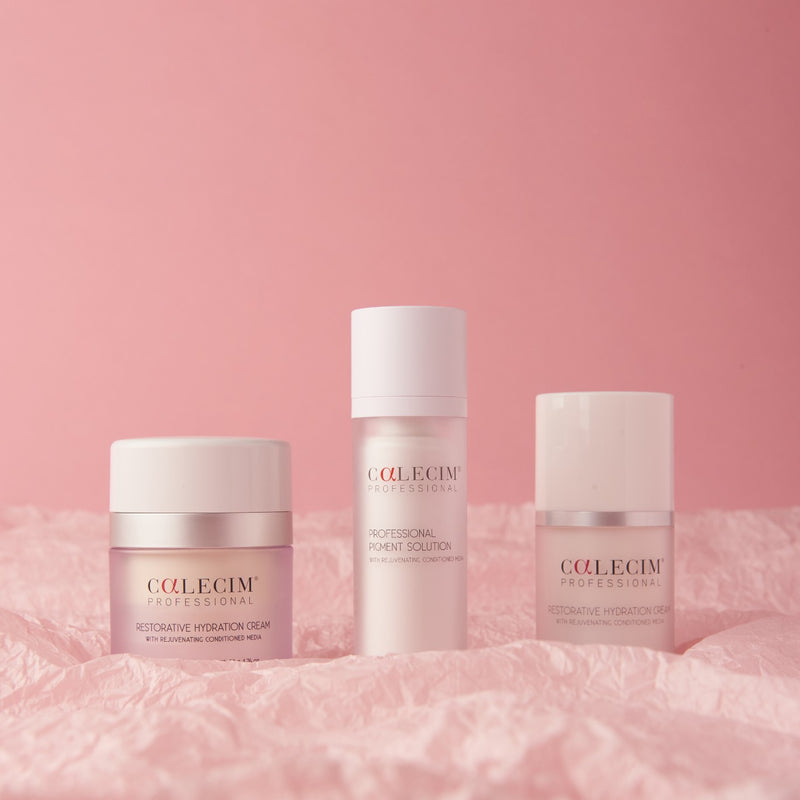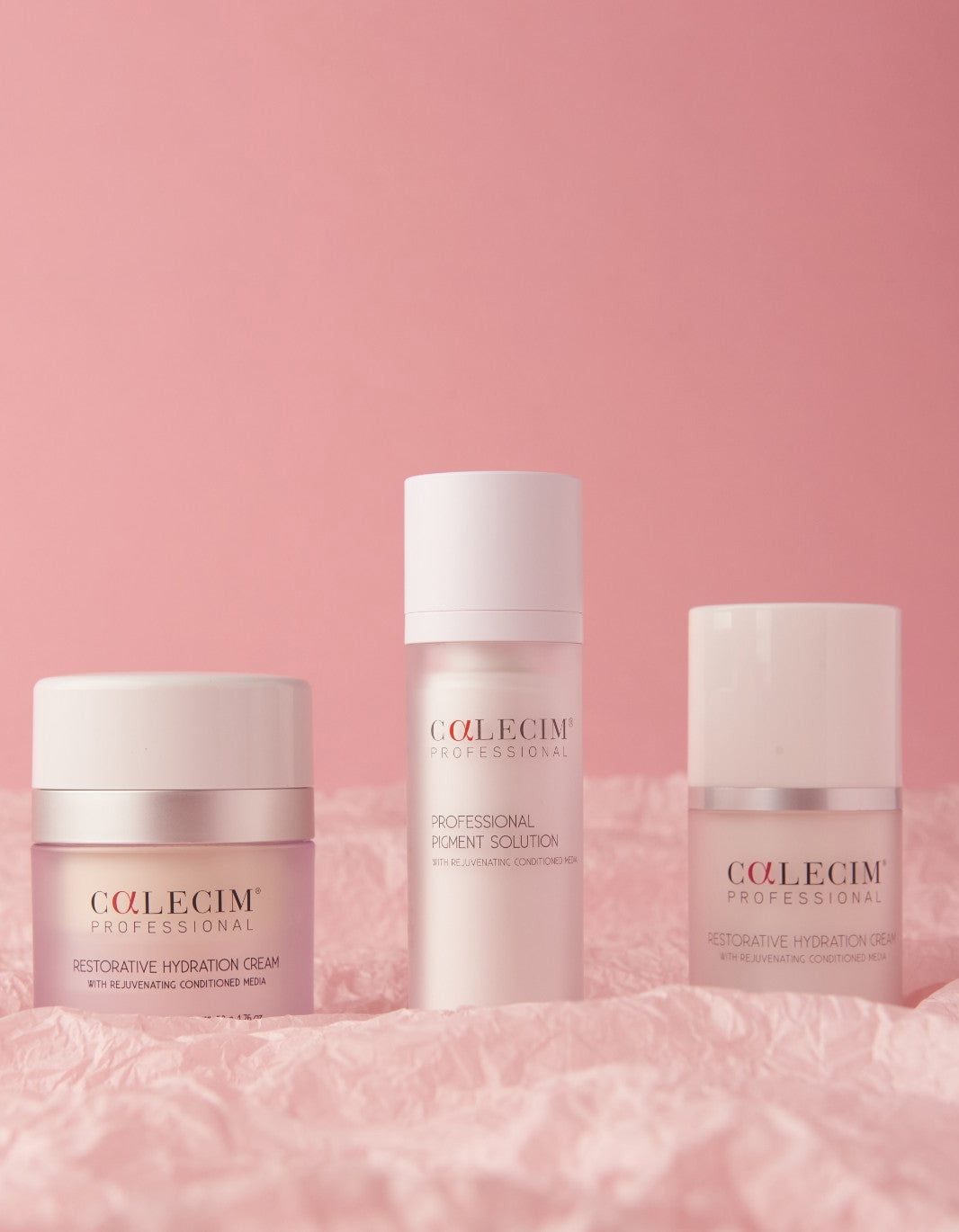Is female hair loss different?
A glitch in the hair cycle can induce hair loss and the emotional impact of this tends to be worse for women
A glitch in the hair cycle can induce hair loss and the emotional impact of this tends to be worse for women
Hair loss is commonly associated with men. However, about one-third of women experience thinning hair at some point in their lives.1 For women, hair is perceived as a symbol of their attractiveness. Losing their crowning glory, therefore, can be devastating, especially when it occurs at an early age. The stress they experience could aggravate the problem, inducing a self-perpetuating vicious cycle.
This is because stress has been found to be a possible cause of hair loss, especially in the case of telogen effluvium (TE). The second most common reason for falling hair, TE is a type of hair loss caused by an increased number of hair follicles reaching the telogen phase, which is the stage at which hair falls out.2 While anyone can be affected by it, it appears to be more common in women aged 30 to 60.
Similarly, female pattern hair loss too occurs more commonly in women above 40. It is triggered by genes, hormones and menopause. Also known as androgenetic alopecia, this type of hair loss is the most common and shows up as hair thinning on top of the head as well as on the sides. Hair loss also affects women who’ve just given birth; undergone chemotherapy; and who are menopausal. Other causes of the condition in women are trichotillomania (when someone cannot resist the urge to pull out hair), restrictive diets and over-processed hair.3
What is the difference between hair loss in men and women?
Men with male pattern baldness typically experience a receding hairline and hair miniaturisation on the crown. In women, on the other hand, the vertex and midfrontal scalp are commonly affected.4 Compared with women, hair loss can occur at a younger age with men. Heredity is the most common cause for both conditions.5
How is telogen effluvium different from other types of hair loss?
Hair doesn’t grow continuously; it goes through four different stages. The active growth or anagen stage typically lasts three to five years. It then enters a short transitional period known as the catagen phase, which signals the end of active hair growth.6 After that, it moves to a resting or telogen stage for up to two months before starting to grow a new hair fibre again. Finally, in the exogen phase, individual strands fall out from the hair follicles. At any time on a healthy human scalp, about 80% to 90% of the hair follicles are in the anagen phase while 10 to 20 per cent of scalp hair follicles are in a resting or telogen state.7
TE happens when there is a disruption in the number of hair follicles growing hair. If the number of hair follicles producing hair drops significantly for any reason during the resting phase, there will be a considerable increase in dormant, telogen-stage hair follicles.8
TE involves rapid hair shedding over a short period unlike androgenetic alopecia where hair loss is more gradual. It usually takes place after the body has gone through a physically or emotionally stressful event, triggering more shedding than the typical 50 to 100 hairs a person loses per day. Severe illness, surgery, blood loss, hospitalisation, childbirth and extreme emotional events like the loss of a loved one can lead to TE. The degree of hair loss depends on the severity and duration of the exposure to stress.
Exactly how these stressors give rise to TE isn’t quite clear. TE short-circuits the growth cycle, resulting in clumps of hair falling out two to three months after the offending event.9 It can also result from sudden hormonal changes and also from ongoing health conditions like a thyroid problem or an autoimmune disorder. Hair loss due to TE is usually temporary, and your hair often grows back without treatment once you are free from that stress. This could take six to nine months, while chronic TE can last as long as five to seven years10
What are the current treatments available for TE?
How TE is treated depends on what has activated it. For short-term TE, it might be best to wait it out. If stress is the problem, measures should be taken to reduce it. If dietary deficiencies are detected through a blood test, supplements could work. Dermatologists may prescribe minoxidil, a direct hair growth stimulator, which can work well for some individuals. However, if the cause of stress is not removed, then minoxidil may block the redevelopment of TE.11 Some practitioners, like Dr Munir Somji who is an industry leader in hair restoration procedures, have reported success using CALECIM® Professional’s Advanced Hair System in treating the condition. The product contains growth factors and exosomes derived from stem cells that are able to trigger your own stem cells within the hair follicles.
The CALECIM® system is also the only hair treatment that has been clinically validated for successfully reversing TE caused by Covid-19. This case study has been reported in the Journal of the American Society of Plastic Surgeons.
Women suffering form hair loss should be reassured that they no longer have to suffer in silence. Unlike in the past where the issue was seldom addressed, these days, it is more widely discussed and help more readily available.
References
- https://www.health.harvard.edu/staying-healthy/treating-female-pattern-hair-loss
- https://my.clevelandclinic.org/health/diseases/16921-hair-loss-in-women
- https://my.clevelandclinic.org/health/diseases/16921-hair-loss-in-women
- https://www.ccjm.org/content/88/3/173
- https://www.mayoclinic.org/diseases-conditions/hair-loss/symptoms-causes/syc-20372926
- https://www.philipkingsley.co.uk/hair-guide/hair-science/hair-growth-cycle.html
- https://www.webmd.com/skin-problems-and-treatments/hair-loss/effluviums
- https://www.webmd.com/skin-problems-and-treatments/hair-loss/effluviums
- https://www.nytimes.com/2022/09/30/well/live/hair-loss-covid.html
- https://www.dermatologyadvisor.com/home/decision-support-in-medicine/dermatology/telogen-effluvium-stress-induced-alopecia/
- https://www.webmd.com/skin-problems-and-treatments/hair-loss/effluviums































